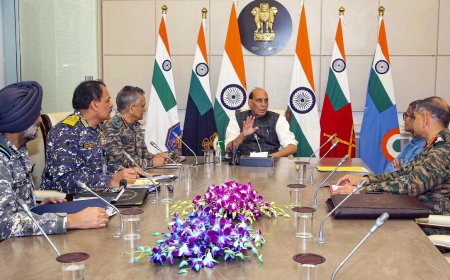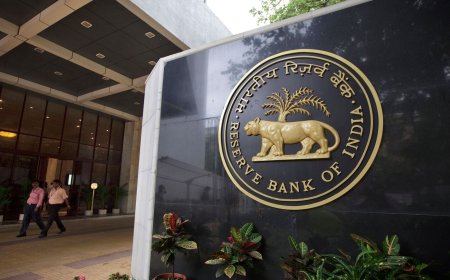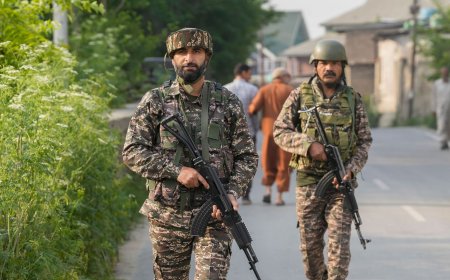13 Flights Cancelled at Pune Airport Amid Rising India-Pakistan Tensions
Amid escalating tensions between India and Pakistan, 13 flights were abruptly cancelled at Pune Airport. Here’s what we know, possible reasons, and its wider implications on national security and air travel.

13 Flights Cancelled at Pune Airport Amid India-Pak Tensions: Here’s What We Know
Introduction: Tensions in the Sky and on the Ground
In a sharp escalation that has triggered ripples through India's transportation and defence sectors, 13 flights were cancelled at Pune International Airport (PNQ) on May 8, 2025. The cancellations come amid rising cross-border tensions with Pakistan, following the recent interception of hostile drones and missiles in the Jammu region by the Indian Air Force.
While the official communication from airlines cited “operational reasons,” multiple sources in the civil aviation and defence ministry indicate that the flight disruptions were a precautionary move linked to heightened airspace surveillance and potential re-routing of military aircraft.
Let’s break down what happened, why it matters, and what passengers, planners, and citizens need to know.
What Happened: The Timeline of Disruption
The flight cancellations took both travelers and aviation stakeholders by surprise. Here’s a timeline of how events unfolded:
-
May 8, 6:00 AM IST: Three early morning flights bound for Delhi, Hyderabad, and Bengaluru are marked “delayed” on the airport display boards.
-
7:45 AM: Airport staff confirm flight cancellations, but provide no official reason.
-
By 10:00 AM: Total cancellations reach 13, including major carriers like IndiGo, SpiceJet, Air India, and GoFirst.
-
12:30 PM: Passengers are informed that flights may resume later in the day, “depending on air traffic permissions”.
-
2:00 PM onwards: Normal operations begin to slowly resume, with significant delays and priority given to connecting and medical flights.
Aviation insiders hint that a sudden no-fly zone directive was issued to commercial carriers, possibly to accommodate Indian Air Force movement or restrict civilian air traffic over sensitive air corridors near Pune.
The Security Angle: Why Pune?
On the surface, Pune is not a conventional conflict zone. But its strategic importance to India’s military and aerospace programs is significant, which could explain the pre-emptive flight control.
-
Southern Command Headquarters of the Indian Army is based in Pune.
-
The Lohegaon Air Force Station, which shares its runway with Pune Airport, is a key operational base for aerial combat units.
-
Pune is also home to key DRDO labs and defence manufacturing facilities, including those linked to missile defence systems and avionics.
Amid Indo-Pak tensions, it is plausible that military assets were being moved, and commercial flight paths temporarily conflicted with those routes. According to an anonymous senior official in the Civil Aviation Ministry, “Certain assets had to be relocated, and airspace over Pune needed temporary clearing. The coordination with civilian airlines was executed on short notice.”
What Airlines and Authorities Are Saying
IndiGo Airlines confirmed that five of its flights were cancelled due to “unexpected operational reasons” and assured full refunds or rebooking.
SpiceJet mentioned a “military priority directive” as the basis for its schedule overhaul.
A Pune Airport Authority spokesperson stated:
“We regret the inconvenience caused to passengers. The cancellations were unavoidable due to circumstances beyond our control. We remain committed to passenger safety and are in constant touch with national air traffic authorities.”
Passenger Woes: Long Queues, No Clarity
For passengers, the situation was nothing short of chaotic. With little to no warning, travelers found themselves stranded, some having waited for hours before being informed of flight cancellations.
"I had a medical appointment in Delhi and was shocked to find my flight canceled without a proper reason," said Anita Desai, a senior citizen passenger who had booked an early morning flight with GoFirst.
Complaints of:
-
Lack of communication from airlines
-
No on-ground coordination
-
Vague reasoning behind the disruption
…have flooded social media. Some even speculated that a security scare was being kept under wraps. However, there has been no official confirmation of a direct threat to Pune Airport itself.
Airspace Coordination During Conflict: A Closer Look
Whenever India faces heightened border security threats, the Directorate General of Civil Aviation (DGCA), Air Traffic Control (ATC), and the Indian Air Force work closely to secure the skies.
Key safety measures include:
-
No-fly zones near military assets
-
Temporary flight corridors for troop and equipment movement
-
Airspace priority rules, especially over dual-use airports like Pune
During the Balakot Air Strikes in 2019, similar temporary airspace closures were implemented in parts of North India. Pune’s involvement in this recent airspace control move signals the scale of military preparedness underway.
Civil-Military Conflict Preparedness in Indian Aviation
India’s civilian airports, especially those in proximity to strategic locations, are increasingly integrated into national defence strategy.
Here’s why Pune Airport becomes crucial in times of cross-border tension:
| Feature | Relevance |
|---|---|
| Shared runway with Air Force | Immediate tactical movement possible |
| Near Army HQ Southern Command | Mobilisation hub for southern border states |
| Adjacent to DRDO hubs | Logistics and R&D security |
| Closer to western border zones | Part of logistical air corridor network |
This integration ensures India can mobilize quickly while maintaining a semblance of normalcy for civilians, though it does occasionally cause air travel hiccups like the one seen this week.
Economic and Operational Impact
While the cancellations lasted only a few hours, the economic and logistical impact was significant:
-
An estimated ₹1.2–1.5 crore in losses across airlines due to refunds and missed connections.
-
Ground service providers faced schedule disruptions, with perishable cargo and medical shipments delayed.
-
Business travellers and IT executives, especially those commuting between Pune and Bengaluru, experienced cascading effects on meetings and project timelines.
If these geopolitical tensions persist, India’s aviation sector may need to recalibrate its emergency protocol for such flash disruptions.
Government’s Role and What Comes Next
As public concerns rise, pressure is mounting on:
-
Ministry of Civil Aviation to install more robust passenger alert systems.
-
Defence Ministry to communicate civil-military airspace usage more transparently.
-
Local administration to offer on-ground support for sudden cancellations.
Sources indicate that a contingency framework is being discussed which could include:
-
Setting up dedicated emergency briefing kiosks at airports near strategic zones.
-
Creating dual NOTAM (Notice to Airmen) alert systems, one for pilots and another for passengers.
-
Mandating minimum notice periods for planned civilian flight disruptions.
Such proactive steps could reduce passenger anxiety and improve India’s overall aviation resilience during geopolitical crises.
Why This Matters: A Symbol of National Readiness
The cancellation of 13 flights at a non-frontline city like Pune underscores an important truth — national security isn’t just a matter of borders anymore, it’s about how every part of the country is prepared to adapt and support.
Airports, cities, logistics hubs, and even civilian life all form part of the new theatre of security and readiness. This minor disruption could be a preview of how India responds to hybrid warfare, cyber disruption, and fifth-generation conflict, where logistics matter as much as bullets.
Final Word: Caution in the Air, Alert on the Ground
As skies over the western sector of India brace for heightened alert, the brief silence at Pune Airport stands as a silent marker of the price of peace. It wasn’t an attack, nor was it panic — but it was a reminder.
A reminder that in today’s security environment, even one radar ping or cross-border drone can put an entire city’s operations on hold — from air travel to defence strategy.
Passengers may have lost time. Airlines may have lost money. But India, in these moments, ensures that it never loses preparedness.
What's Your Reaction?
 Like
0
Like
0
 Dislike
0
Dislike
0
 Love
0
Love
0
 Funny
0
Funny
0
 Angry
0
Angry
0
 Sad
0
Sad
0
 Wow
0
Wow
0












































































